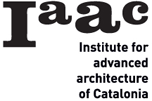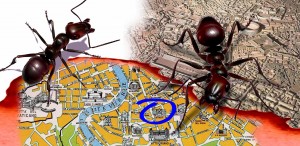 From science to sociology, the ants colony organization, the human cells communication, the great cities development, Steven Johnson trough these three case studies explores the different interactions typologies from a micro to a macro scale, in order to study the relations between local interaction and global behavior.
From science to sociology, the ants colony organization, the human cells communication, the great cities development, Steven Johnson trough these three case studies explores the different interactions typologies from a micro to a macro scale, in order to study the relations between local interaction and global behavior.
The author analyze first the ants life, the colony organization, in order to understand the collective intelligence of the colony system.
The ant colony is a complex and intelligent system based on a single and “stupid” one, the ant indeed, with an incredible knack for engineering and social coordination without clear roles but with a coordinated work to assure a global situation. Read More



